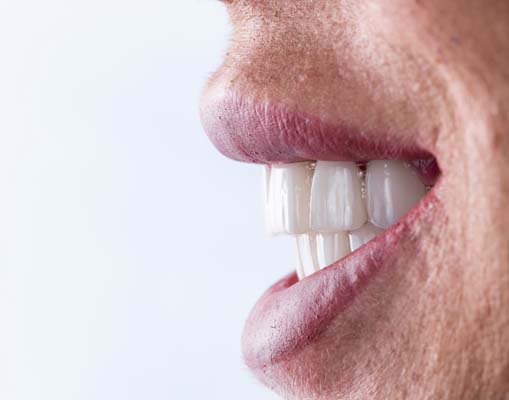Common Questions and Answers About Implant Supported Dentures

Implant-supported dentures are often preferred over their conventional counterparts due to the excellent stability they provide and their bone preserving properties. Unlike traditional dentures, which rest on the wearer’s gums and are held in place via suction, implant-supported dentures are attached to implants that are strategically inserted into the patient’s jaw.
Implants-supported dentures FAQs
Thinking about giving implant-supported dentures a try? Here are answers to some of the questions you might have about these oral prosthetics:
1. What is the process of getting implants like?
Implants are surgically placed into a patient’s jawbone and they are left there to fuse with tissues around them. The process is called osseointegration and it leads to implants being almost as stable as real teeth roots. It can take up to six months for the process of osseointegration to be completed.
2. Are implant dentures better than conventional ones?
Traditional dentures are known to move around when worn. This can lead to sores forming as the rigid structure of the dentures rubs against soft tissues like the cheeks. The poor stability of traditional dentures also makes it more difficult to eat or speak with them. Denture wearers often need a month or more to adjust to the restoration and some people never become comfortable with them.
Implant dentures do not move when worn, leading to an improved experience for the wearer. This leads to a variety of benefits like improved comfort, speech and appearance. Implant dentures also help to prevent the bone tissue loss that is often associated with losing teeth.
3. How are implants installed?
Getting implants requires minor oral surgery. The dentist might need to cut into the patient’s gums to expose the jaw. Holes are then drilled into the jawbone and implants are shoved into the holes until the bone tissues around them hold them in place. Any incisions made are sutured up to complete the installation.
The patient is then given up to six months for the implants to fuse with bone tissues around. Attachments are fitted to the implants and these are used to hold their dentures in place.
4. Who qualifies for implants?
Patients need to be healthy to go through oral surgery. Conditions like immune system disorders and diabetes weaken the immune system. Patients with these types of conditions might have to explore other options. Medications like blood thinners also impact a person’s ability to recover after surgery.
Patients should be willing to give up drinking, smoking or the use of recreational drugs before getting implants. Such habits can slow down the recovery process after surgery.
5. Are implant dentures removable?
Implant-supported dentures can be removable or fixed in place. Many patients prefer the latter since it allows them to get back to how life was before they lost their teeth. The special dentures used do not require any additional care besides good oral hygiene.
We can replace your missing teeth
Call or visit our Georgetown clinic to learn more about how implant dentures can be used to replace your missing teeth.
Request an appointment here: https://www.healthysmilesgeorgetown.com or call Healthy Smiles Dentistry Georgetown at (512) 864-9010 for an appointment in our Georgetown office.
Check out what others are saying about our dental services on Yelp: Implant Supported Dentures in Georgetown, TX.
Recent Posts
Wondering if you should choose implant supported dentures? If you are in need of dentures so you can have a healthy mouth, it is important to choose a type of dentures that are right for you. Things to consider include how they look, how easy they are to care for and how long they will…
The transition to dentures can be both an exciting and unnerving time in your life. First of all, your lifestyle is going to improve immeasurably: you'll be able to eat, talk, swallow and smile in a whole new way. Implant patients also report a dramatic rise in their self-esteem and confidence, as their new smiles…
Are you missing multiple (or even all of your) teeth and curious about the All-on-4® tooth-replacement system? Discussing this procedure and how it works with your general dentist is a good idea. Read on to find out more about the process for All-on-4® dental implants.Understanding that the All-on-4® tooth replacement option uses dental implants is…
All-on-4® dental implants are a popular teeth replacement option for a number of reasons. But how do you know if All-on-4 is right for you? Of course, the best person to ask is a dentist. However, if you are considering this option, here is an overview of what you can expect from All-on-4.All-on-4 replaces a…


